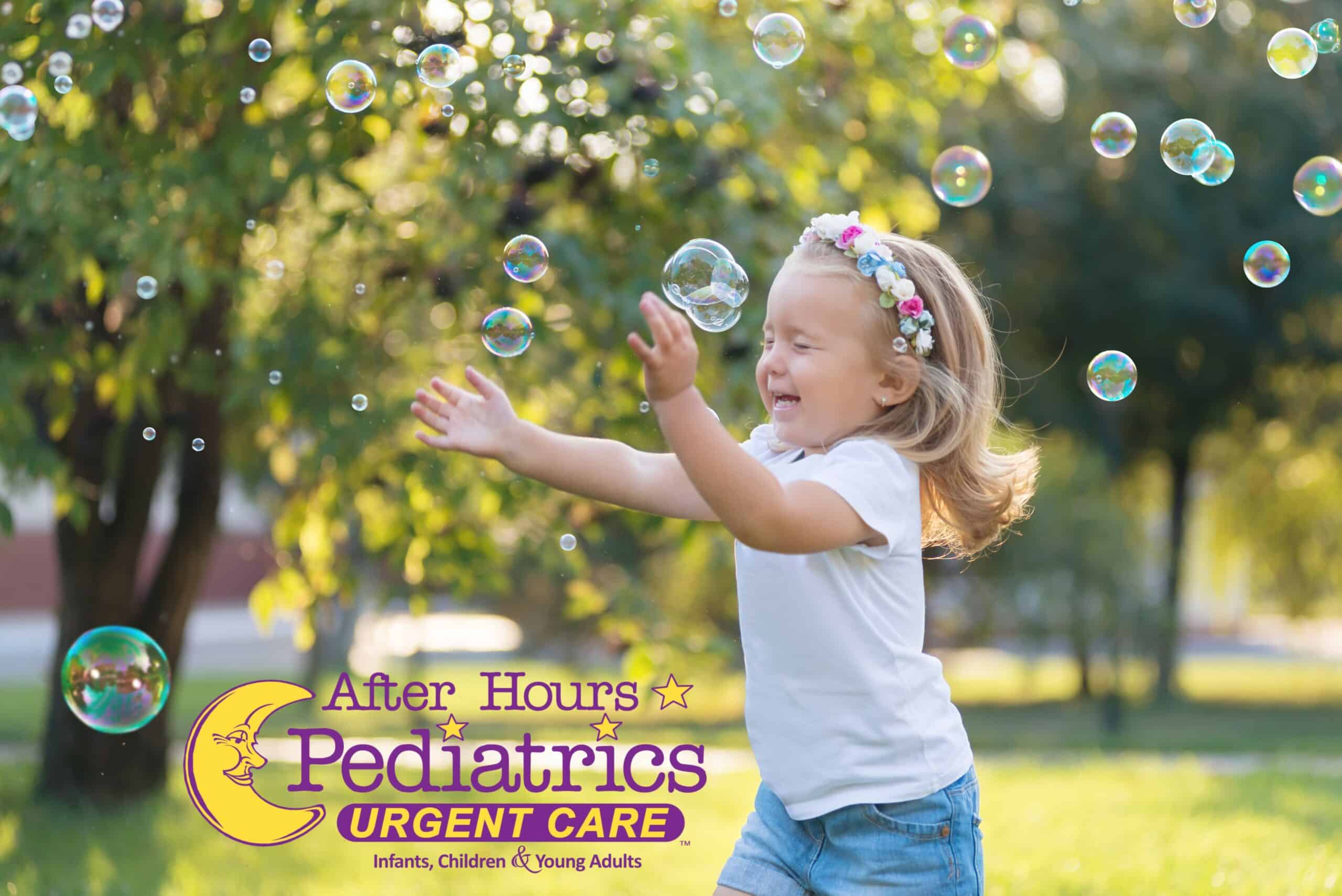16 Tips for Taming Seasonal Allergies in Children
Stuffy nose, itchy eyes and throat–sound familiar this time of year in Florida? Allergy season is in full swing in Tampa Bay and if you’re like us, you probably have a child who suffers from seasonal allergies. This is why we’re calling the experts After Hours Pediatrics Urgent Care.
Medical Director, Lou Romig, MD, FAAP, FACEP is offering some top tips to help parents take care of their kiddos and tame seasonal allergies once and for all.

Looking for Things to Do in Tampa Bay?
>>This Week’s Favorite Events
>> Nearby U Pick Farms
>> 40+ Free Things to Do with Kids
To help tame allergies, keep the outside OUT
- Shoes worn outdoors should be removed at the door to your home and kept out of the main areas of the home until they’ve been cleaned. This helps keep pollen on shoes from being tracked over your floors and carpets.
- Bookbags, backpacks and other carried items that may spend time outside collecting pollen should be kept close to the door too. Have children retrieve items they need from their bookbag or backpack without bringing it further into your home.
- Brush or comb outdoor pets frequently in an area that you can clean easily to remove pollen brushed onto the floor. Bathe pets once a week during allergy season if they go outside frequently.
- Change your clothes, or those of your children, after being outside for long periods of time. Consider bathing or showering too.
- Keep windows and doors closed. Use hypoallergenic HVAC filters and change them as often as directed on the package, if not more often.
- If your indoor/outdoor pet sleeps on beds with members of the family, place an extra cover on top of the bedding and shake it out outside the house frequently to keep pollen from getting into the bedding. If it’s a very bad allergy season for you and you have nighttime symptoms, you might need to temporarily ban your pet from the bed.
- Launder washable bed pillows frequently. Run non-washable pillows through the dryer periodically. Use allergy barriers on mattresses and pillows.
- Despite using the measures above, some pollen will probably get into your house. Vacuum carpets and rugs and damp mop hard surface floors weekly, or even more frequently if there are a lot of people coming and going.
- Use a vacuum with a HEPA filter to trap pollen and keep from blowing it back out into the air in the vacuum’s exhaust. Know where the filters are on your vacuum and clean or replace them frequently, according to instructions from the manufacturer.
- Use air filtering/purifying machines in bedrooms and change or clean filters, according to instructions from the manufacturer.
Allergy medications can help your child:
- People who tend to have allergy symptoms at about the same times every year should consider starting daily allergy medications at the beginning of their allergy season, before they start having a lot of symptoms. It’s a little easier to prevent symptoms than to make them go away once they’ve started.
- Nonprescription allergy medicines that can be used daily include non-drowsy antihistamines, such as loratadine (Claritin) or cetirizine (Zyrtec); nasal steroid sprays such as mometasone (Nasonex) or fluticasone (Flonase), and antihistamine eye drops, such as ketotifen fumarate (Zaditor). Most of these medications are safe for children to use. Talk to your doctor about giving these medications to your children.
- Prescription medications for daily use are also available for use by children and include montelukast (Singulair) and inhaled steroids such as fluticasone (Flovent) and beclomethasone (Qvar). Talk to your doctor to see if any of these medications might be right for your child.
If seasonal allergy symptoms are severe, causing disruption of daily activities, the person should:
- Avoid going outside. For children, this might mean no outside recess or PE.
- Wear a mask over the mouth and nose when going outside can’t be avoided.
- Talk to an allergist about allergy testing and possible immunotherapy (shots or oral drops).
*This story was updated from May 2021.





